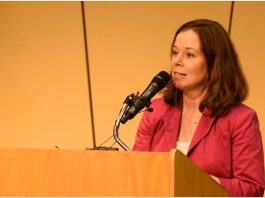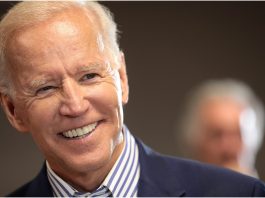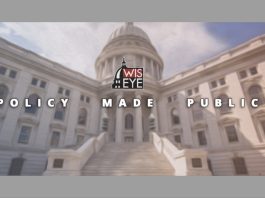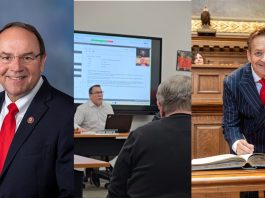Wisconsin budget negotiations have reached an impasse with both sides pointing fingers at the other in Wednesday afternoon statements.
Democratic Gov. Tony Evers said Republican Legislative leaders backed out of negotiations after he agreed to “an income tax cut targeting Wisconsin’s middle-class and working families and eliminating income taxes for certain retirees.” He said Republican leaders would not agree to “meaningful increased investments in child care, K-12 schools, and the University of Wisconsin System.”
Republican Assembly leaders said the two sides were “far apart. Senate leaders say Evers’ desires “extend beyond what taxpayers can afford.”
“The Joint Committee on Finance will continue using our long-established practices of crafting a state budget that contains meaningful tax relief and responsible spending levels with the goal of finishing on time,” said a statement from Assembly Speaker Robin Vos, R-Rochester, and Assembly Finance Co-Chairman Mark Born, R-Beaver Dam.
Evers said that there were meetings between the sides every day this week before the impasse.
“I told Republicans I’d support their half of the deal and their top tax priorities – even though they’re very similar to bills I previously vetoed – because I believe that’s how compromise is supposed to work, and I was ready to make that concession in order to get important things done for Wisconsin’s kids,” Evers said.
Senate Republican leadership said that good faith negotiations have occurred since April on a budget compromise.
“Both sides of these negotiations worked to find compromise and do what is best for the state of Wisconsin,” said a statement from Senate Majority Leader Devin LeMahieu, R-Oostburg, and Senate Joint Finance Co-Chairman Howard Marklein, R-Spring Green.
In early May, the Joint Committee on Finance took 612 items out of Gov. Tony Evers’ budget proposal, including Medicaid expansion in the state, department creations and tax exemptions.
Born previously estimated that Evers’ budget proposal would lead to $3 billion in tax increases over the two-year span.
Wisconsin Policy Forum estimated that the proposal would spend down more than $4 billion of the state’s expected $4.3 billion surplus if it is enacted.












